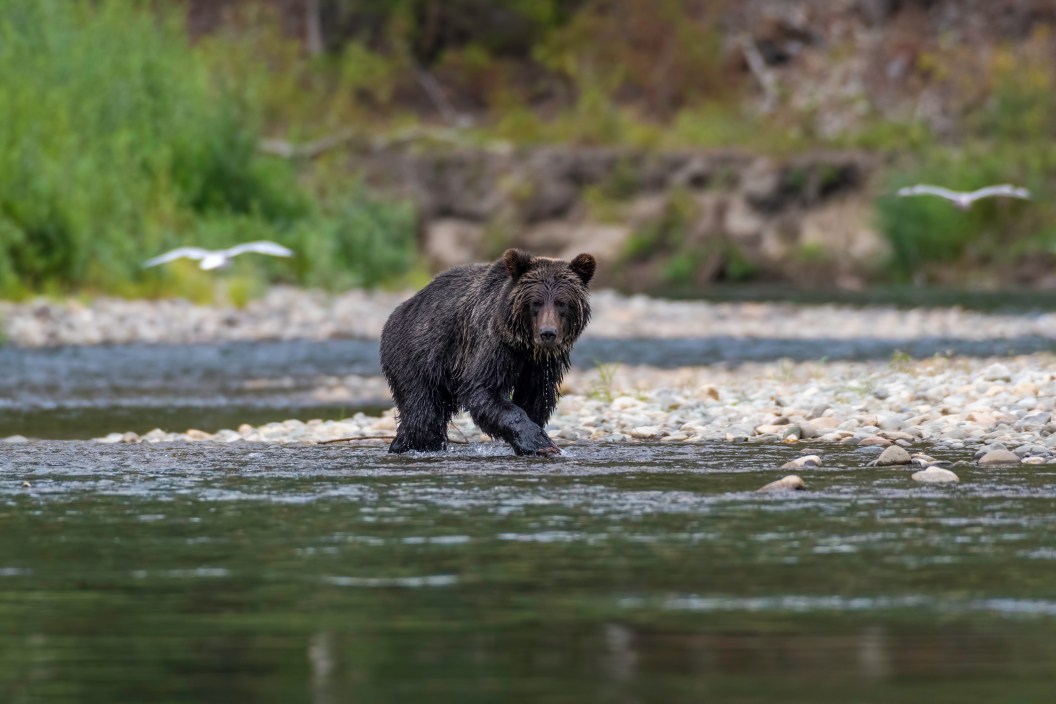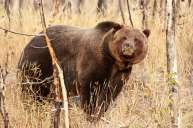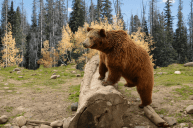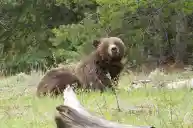If you have a North American grizzly hunt on your bucket list, your only option right now is to go north—far, far north, to Alaska or the Yukon. However, that could be changing in the future as British Columbia just released a draft of a stewardship plan for its own population of grizzly bears—which includes the possibility of lifting a nearly six-year hunting ban.
The B.C. government banned grizzly hunting in December 2017, apart from hunting done by First Nations peoples for food, social, or ceremonial purposes. The decision has continued to be controversial and now the government has released a grizzly bear stewardship framework to set a new direction for how the province deals with its brown bear population.
The framework outlines different approaches to "meet stewardship goals" and summarizes different perspectives regarding the approaches. It includes a small section outlining the possibility of allowing future grizzly hunts. The framework states that the 2017 ban on grizzly hunting was not "directly in response to a conservation concern. Rather it was largely a reflection of many British Columbians' ethical or moral opposition towards grizzly bear hunting."
A Long, Controversial Road to a Hunt
Some conservationists worry that the ambiguity of the new framework will once again allow trophy hunting of the province's 15,000 grizzly bears. Executive director of the Grizzly Bear Foundation Nicholas Scapillati told The Vancouver Sun that he believes the document "leaves the door open to hunting."
However, he also applauds the government for attempting to create a stewardship-based plan, rather than a management plan, which in the past has largely focused on determining how many grizzlies could be hunted.
Either way, even with the new document released, it's too early to start planning a hunt in B.C. If licensed grizzly hunting—outside of what is currently allowed by First Nations peoples—was to be reopened, the framework states that a more detailed review beyond the scope of the document would be required.
The B.C. provincial government is accepting public comments on the draft of the framework until September 8, 2023.
Local Perspectives on Hunting Regulations
Despite still being able to hunt grizzlies for themselves, some First Nations communities have an interest in reopening guide outfitting and grizzly bear hunting to outsiders. The 217 closure of the hunt had a negative impact on their economies and ungulate populations, and some communities want to resume the hunt. The Tahltan Central Government in northwestern B.C. is one of them.
Hunting bears has always been a way to manage predators and protect ungulate species, such as caribou and moose, said Tahltan president Chad Norman Day in the same Vancouver Sun article. The Tahltan government pays local hunters a $1,000 bounty to kill grizzlies, but ungulate numbers continue to decline. Day wants to open the hunt to outsiders to help harvest enough bears to keep ungulate numbers healthy.
Non-First Nations hunters were also economically affected. Ron Fleming, the owner of Love Bros and Lee, an outfitter that used to host grizzly hunts, estimates that each season he's lost $300,000 each season following the ban. Fleming led an attempt by hunting outfitters and guides to seek certification of a class-action lawsuit against the government, arguing that the ban caused undue financial harm and was not based on wildlife conservation science.
Other First Nations communities have spoken out against grizzly bear hunting, as have conservation groups, citing concerns that a trophy hunt would harm an already declining population. When the hunt was first banned, Nazko First Nation Chief Stuart Alec told Quesnel Cariboo Observer that that ban would be a crucial element in the conservation of the B.C. grizzly bear population.
The 2017 ban followed consultations with First Nations groups, stakeholders, and the public in which 78% recommended a grizzly hunting ban.
READ MORE: What Is the Goal in Wildlife Conservation? Hint: It's Not Just About Preserving Game Animals




